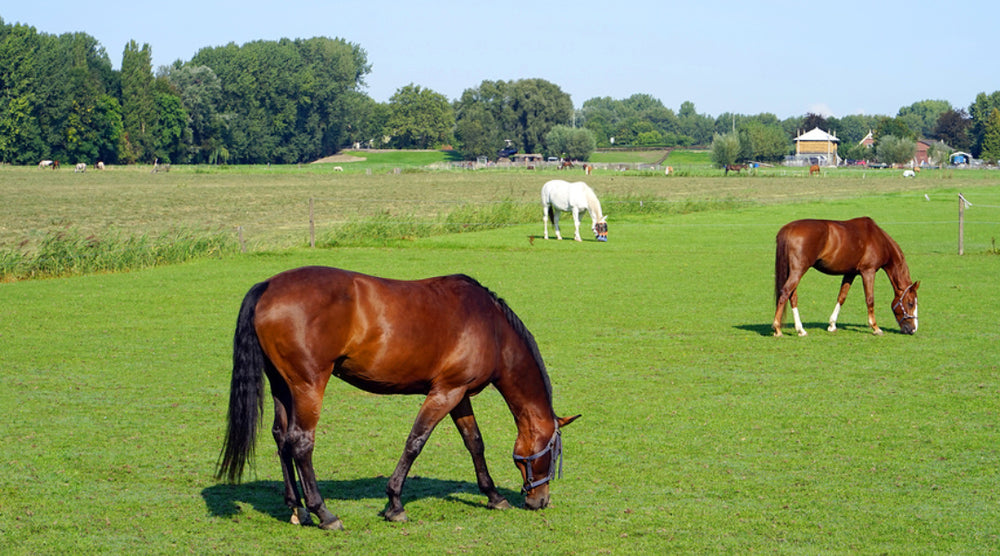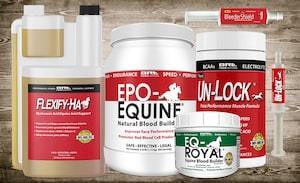
As winter approaches, colic becomes a growing concern for horse owners. Wintertime changes in horse care routines can increase a horse’s risk of colic, especially impaction colic. But you can tailor your horse-care routine to avoid some of these risk factors. Put the following management strategies to work to reduce your horse’s colic risk this winter and all year long.
Focus on Forage Instead of Grain
Make sure that the bulk of your horse’s diet consists of forage, like hay, and supplement with grain only as needed. To make your horse’s hay last, feed it in a small hole hay net or other slow feeder. Just remember to make any dietary changes gradually.
Feed Frequent, Small Meals
Frequent, small meals are healthier for your horse’s digestive system than two large meals per day. Space out feedings and divide up feed with the goal of keeping forage in front of your horse for as much of the day as possible. It’s even better if you can give your horse access to pasture so that he can follow his natural grazing pattern.
Have Your Horse’s Teeth Checked
If your horse’s teeth need to be floated, he may not digest his food properly and can develop colic as a result. Have your vet check your horse’s teeth at least once a year, and remember that young and senior horses may need dental care every six months.
Maximize Turnout
Research studies have repeatedly found that horses that spend most of their time in stalls face an increased risk of colic. It might be tempting to keep your horse in the barn and out of the winter weather, but focus on making sure he spends as much time as possible in turnout all year round. If the conditions outside are hazardous, consider turning your horse out in the indoor arena.
Keep Water Available At All Times
It’s also important to keep your horse hydrated during the winter, so focus on keeping water available to at all times to reduce the risk of impaction colic. Check water trough heaters and automatic waterers at least daily, and consider using water bucket insulators or heated water buckets when your horse is in the barn.
Talk to Your Vet About Ulcers
Ulcers can cause colic and digestive issues. If you suspect your horse may have ulcers, have him scoped for an official diagnosis so that you can start treatment.
Establish a Worming Program
A heavy worm load is also a colic risk. Work with your vet to establish a worming program that’s appropriate for your horses. Your vet will probably suggest that you start with a fecal egg count and then deworm your horses accordingly, based on the results.
Keep Your Horse Active
Rather than giving your horse the winter off, try to keep him in some sort of work. Even if his wintertime routine is lighter and more laid-back than when he’s in full training, riding or lunging your horse regularly in the winter helps to keep him active, and this can help to reduce his risk of colic.
While it’s impossible to completely prevent colic, the above steps can reduce your horse’s risk factors for this life-threatening issue. Implement them not just in the winter, but throughout the whole year to prioritize your horse’s health.
Top trainers, owners and competitors rely on BRL Equine products to help their horses perform at their very best. You can get the same great results! Our all-natural equine nutritional supplements really work... guaranteed or your money back!





Also in Horse Tips and More
Top 10 Ways to Show Your Horse You’re Thankful For Him
November 01, 2021
View full article →
5 Ways to Prepare Your Barn For Summer
May 03, 2021
View full article →
Your New Spring Horse Health Checklist
March 12, 2021
View full article →